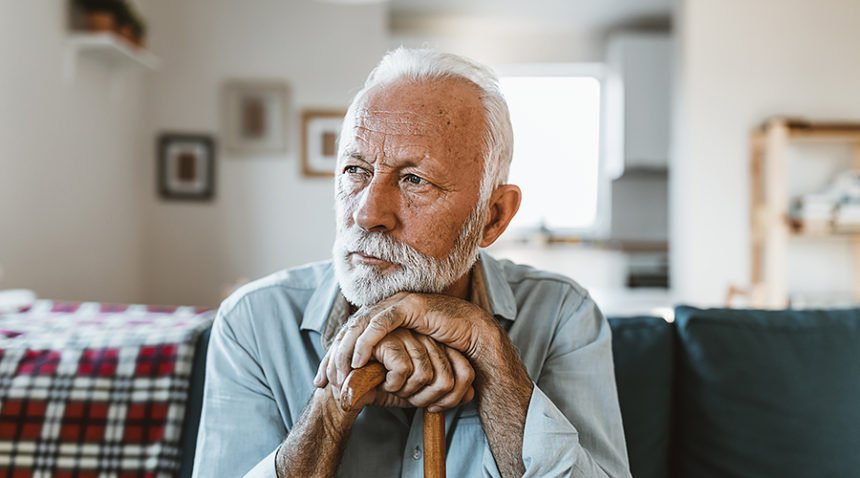
Depression affects countless Americans, and elderly patients in nursing homes experience depression at increased rates. A sense of isolation, hopelessness, or a simple lack of interest in life can often flavor the depressive episodes and symptoms elderly patients experience while in a nursing home. However, with the right behavioral or mediation changes, they can battle this depression effectively. As their loved one, you’re also in a unique position to help them combat depression. There are seven key ways to do just this:
1. Nostalgic Recollections
When depression hits your mind, the flavor and excitement of life can suddenly feel as though it’s vanished. For elderly patients living in nursing homes, the advanced nature of their age makes the power of happy, warm, and important memories a great cure for the effects of depression. Consider bringing a box of old family photos, or recollecting some fantastic memories you have with them, and you can severely improve their mood. By frequently doing this, you will begin to build up a happy, safe source of depression-battling memories for them to enjoy and benefit from.
2. Frequent Visits
Even if you’re only able to stop by for an hour or so, finding time to frequently visit your elderly loved one will prove incredibly helpful for combatting their depression. Understanding their nursing homes’ hours of visitation, and the rules surrounding these visits can be more difficult in the age of Covid, so be sure to study them. The socialization, knowledge that you care for them, and stimulation they gain from the visits are extremely important to their mental health. Frequent visits can also help you support your loved one in the unfortunate case that they are not being properly cared for in the nursing home. If you find yourself in this situation, contacting the Nursing Home Law Center for knowledgeable, compassionate representation is highly recommended.
3. Mind-Activating Hobbies
You will not always be there to help your loved one battle their depression. By helping them to develop hobbies that can keep their mind active, and inspire them to continue developing their hobby, you will give them an incredibly strong weapon to battle their depression with. Photography, drawing, and many other hobbies can still be accessible to nursing home patients. Simply figuring out where your loved one’s interest lies will help you figure out what hobby will suit them best. If their mental health is not kept in a healthy condition, they can begin experiencing physical symptoms stemming from their depression as well.
4. Musical and Movie Nights
Nostalgic recollections can be achieved with movies and music. Especially for elderly people, the amount of amazing music and movies they’ve lived through will give you a treasure trove of memories to choose from. Setting up a program of music or movies to listen to/watch with them on your next visit can help produce wonderful, energy-infused investigations into your loved one’s past. As they tell you about their memories surrounding the moves or music, you can even find new ways to inspire them to take up hobbies or other depression-battling tasks.
5. Community Engagement
Quality nursing homes are often planning community activities that allow their patients to bond with one another, while they enjoy making new memories. The sense of connection this can give your elderly loved one to their new home is especially important during the initial transition they experience when moving into the home. Even after they’ve been a patient for a considerable amount of time, the joy this community engagement can bring them is one of the best ways for them to battle off depression.
6. Unexpected Visitors
While your frequent visits are wonderful, a surprise visit from someone important to your loved one is sure to make their day extra-bright and shiny. Knowing how to schedule a surprise guest in a way that will not catch the attention of your loved one is key, as the surprise part is extra-useful for improving their mood, and reminding them of nostalgic, pleasurable memories. The connection to their past life, and the joy of seeing the surprise guest at that moment, will significantly help lower their feelings of depression. Getting your loved one back outside after a long time sitting in the home can be a great idea as well as you pull off this step.
7. Medication
Lastly, medication can be a wonderful, even life-saving way to help treat your elderly loved one’s depression. After all, many people are diagnosed with clinical depression as they grow older, so knowing how to treat it with both medication and behavioral changes is key. Medication that treats depression in elderly patients can also boost their sense of energy, motivation, and concentration. With the right medication, your elderly loved one will begin feeling younger and peppier than they have in years.
Depression Can Be Combated
It’s easy for extra-depressed people to give up on hope. However, being there for your loved ones during depressive episodes or periods will help you bring them through this tough time in their life. Each of the seven above solutions can help you battle their depression in an effective, valuable way (and will help you significantly strengthen your emotional bond with your elderly loved one as well).